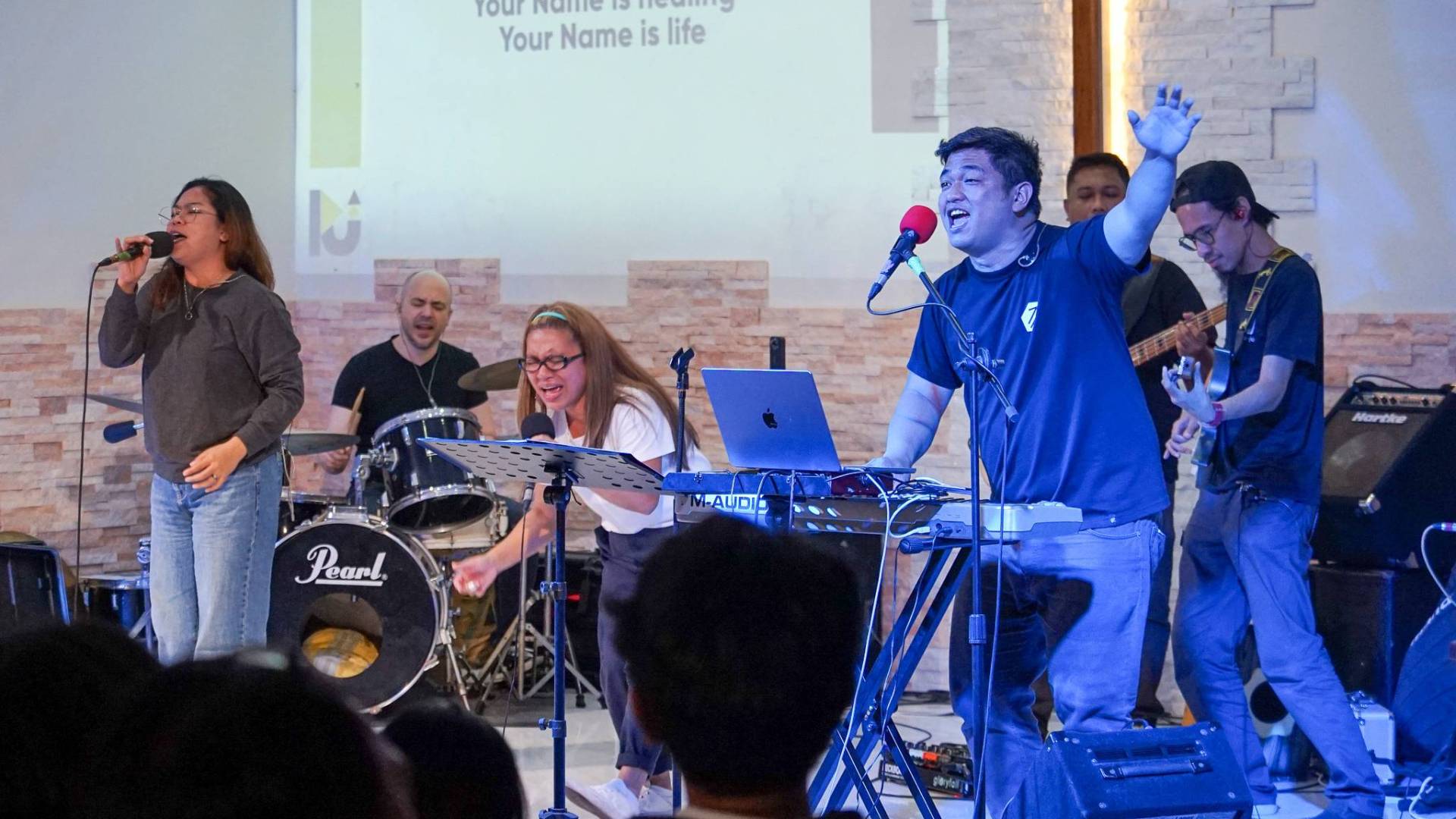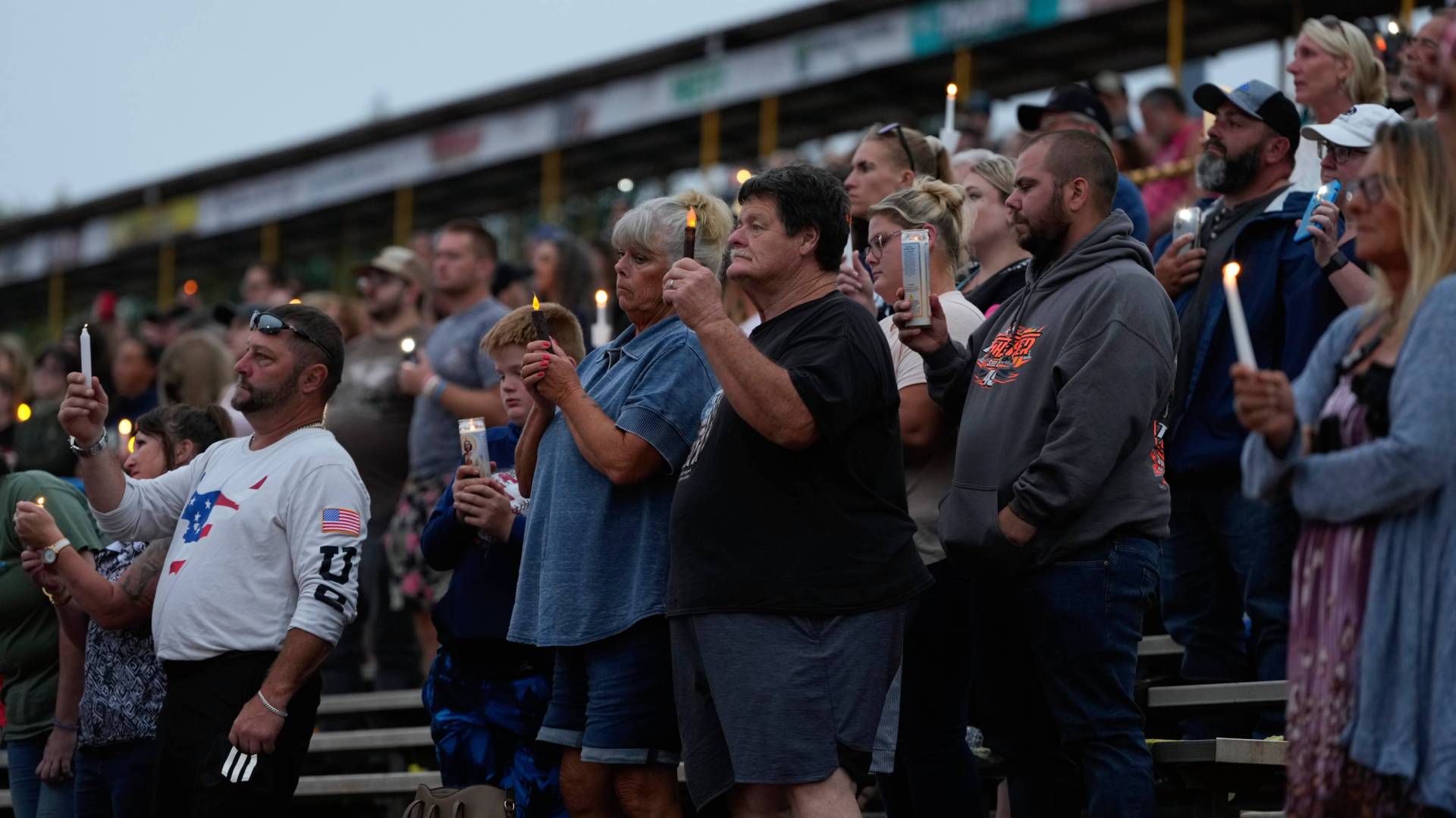Arnel Cadeliña, a pastor and worship leader in Manila, remembers when his parents called their only “born again” relative for help. It was 1983, Cadeliña was 12, and his family was convinced that his teenage sister was possessed by a demon.
“He showed up with two guitars and two singers,” Cadeliña recalled. “Then he said, ‘Let’s not mind her, let’s mind the name above all names,’ and they led us in worship songs.”
Cadeliña remembers singing simple praise choruses like “This Is the Day” and praying. He says he witnessed two miracles that day: the deliverance of his sister and the conversion of his family.
“We didn’t know the Bible, we didn’t understand God, but he showed up in the power of our music, in the power of our worship.”
Contemporary praise and worship music from the United States, Australia, and the UK has been a part of Cadeliña’s faith journey since its beginning.
Like many Protestant Christians in the Philippines, he grew as a believer while singing songs from direct-to-consumer cassette tapes by Integrity’s Hosanna! Music in the ’80s and ’90s, passed along by missionaries and within grassroots networks of churches. (“This is the Day,” the song Cadeliña remembers singing, was administered and distributed by Integrity.)
With the influence of Western worship music, Filipino leaders like Cadeliña are trying to balance local music with popular hits coming from the US-dominated worship music industry.
Cadeliña now leads FIJ (Faith in Jesus) City Church in Manila with his wife, Jessica, the church’s worship leader. The church is an independent Protestant church, with an auditorium that looks a lot like one you would find at a nondenominational church in the US: mostly black, with a stage lit by intelligent LEDs, outfitted with a high-end sound system and band instruments.
The Cadeliñas are both musicians, writing and recording original songs for their church and leading training workshops for church musicians in their region. Arnel loves the Western praise and worship music that has shaped his faith, but is determined not to let it dictate the musical practices of his church. For each service, they try to program two songs in Tagalog and two songs in English (the two official languages of the Philippines).

“We’ve had weeks when a team lined up a bunch of songs by Hillsong and Planetshakers,” he said. “If we don’t make a decision to do local songs, we would be overwhelmed,” he continued, by the global options and influence.
Because Christianity came to the Philippines through colonization, the Filipino church has always been deeply influenced by Western culture. Today, the Philippines is second only to the US in its 17 percent share of Hillsong Worship’s global audience, according to Chartmetric (the US audience is 28%). And the Philippines is the primary audience of the Australian group Planetshakers (33% of its listenership).
In metro Manila, most Filipino churches that use contemporary music sing a blend of English and Tagalog on Sunday mornings. Sometimes, congregations sing a single song in both languages (with the verses in Tagalog and the chorus in English, for example) and hear preaching in a blend of the two languages, Taglish.
Worship leaders can rarely find official worship song translations in Tagalog (or in any of 150-plus other native languages spoken in the Philippines), so some local musicians are working to develop their own repertoire.
Gloryfall, a collective of worship leaders around Manila, has been working on translations of popular worship songs since the pandemic. They have received approval from original recording artists to produce translations of over 30 hit songs, including “King of Kings” and “Who You Say I Am” from Hillsong.
“We’ve gotten a lot of feedback from local Christians who say that it’s been really meaningful to have these songs in Tagalog,” said drummer Harald Huyssen, a former missionary kid and a faculty member at the University of Santo Tomas Conservatory of Music in Manila.
“Singing the last chorus of a song in Tagalog rallies the congregation,” said Chester Elmeda, Gloryfall’s keyboardist. “I always look forward to the end of ‘King of Kings,’ when everyone starts singing in my language. That’s the power of your own native tongue.”
Gloryfall records its own music and runs a studio for other local musicians to use. The group has seen a growing enthusiasm for grassroots music in Tagalog.
“It’s easier for Filipinos to access the doctrine and theology in our native tongue,” said Rye Pecardal, the group’s bassist.
The growth of the Philippine market for worship music has caught the attention of the global music industry. In 2021, Sony Music Philippines launched a new Christian label, Waterwalk Records. Gloryfall was one of the first bands to join.
“I appreciate that the industry sees the value of Filipino Christian music and that a major label is supporting this work,” said Huyssen. “Why wouldn’t there be a Christian label? It’s interesting that it took so long. Sony is a business, it sees the value.”
On a global scale, the exchange of music is still relatively one-sided.
“With the current state of the industry, it would be almost impossible to send music the other way,” said Huyssen. “The rest of the world aspires to the level of production coming out of Nashville, for better or worse. It’s not a level playing field.”
Many Filipino worship leaders and church musicians see questions of provenance as distracting or counterproductive, while acknowledging that the dominance of music from one segment of the global church falls short of “on earth as it is in heaven.”
“We have to begin with a kingdom mindset, as opposed to a hemispheric mindset,” said Elmeda. “The best themes always come from the Word of God. There’s no competition. ‘How Great Is Our God’ takes the ‘me’ out of it.”
When a song coming from the US doesn’t resonate, they don’t use it. Huyssen said certain Western songs that deal with trials and struggles don’t strike the right tone in English lyrics written by a famous American artist.
“An American’s material struggle does not exactly relate to a Filipino’s material struggle,” said Huyssen. “But the more vertical songs, like ‘How Great Is Our God’ or ‘10,000 Reasons,’ have a universal theme. God’s using these songs powerfully here.”
Filipino leaders are very plugged into the broader worship music industry, and there is a lot of variation in how church leaders are choosing to deal with questions of music selection, similar to the US.
“Sure, there are churches here that will ban songs by Bethel or Hillsong. People pay attention,” said Jessica Cadeliña. But at their church, decisions about a particular song are made based on the merits of that particular song. “It’s not about the group, it’s about Jesus.”
“You have a culture in each church,” said Arnel Cadeliña. “You have to tailor your music to your congregation and your musicians. We’d love to play music by Israel Houghton—he’s so good. But the music is so difficult to play!”
The Cadeliñas’ worship music ministry has grown since they started leading training sessions and workshops in 2003. They are known as “Malayang Pilipino” (“Free Filipino”). It’s the name of the title track of their first album, written in 1998 to celebrate the 100-year anniversary of the Philippines’ liberation from Spain.
The name stuck, completely by accident. “Malayang Pilipino” has continued to resonate as the Cadeliñas, Gloryfall, and other leaders navigate music ministry, balancing the freedom to embrace or reject outside influences with a commitment to the celebration of Filipino identity in the church.





































